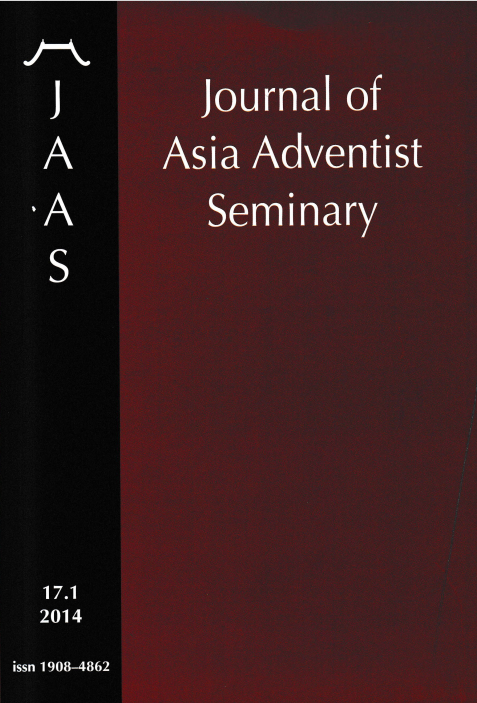Editorial
Abstract
The term church is an ambiguous term and seems to have as many definitions as there are people contributing to the discussion. It does not help that the English word itself has different nuances that can refer to a physical building, a local congregation, or the institutional organization of a particular denomination. The examination of the term church throughout the centuries independent of its predecessors yields an impressive array of results. The church is known as a house church, church in hiding, social gathering, movement, institution, or specified by its denominational name. The last decades have added new identifiers to reflect recent developments and meanings as churches are described as seeker-oriented, purpose-driven, emergent churches, or megachurches.
People have additionally associated the term church with their own experiences or perception(s). Church is closely associated to corruption, power, oppression, exclusion, but is also connected to rebellion, redemption, community, belonging, spiritual care, outreach, and refuge. The former has primarily been in view, and often correctly so, for diverse people groups such as the Anabaptists to the New Atheists, while the latter is the experience of revivalists such as Methodists and modern refugees. Surprisingly, some groups, such as the Afro-American slaves of North America testify to both realities.
All these labels and names reveal that the single term for church, or its Greek precedent, ekklesia, has been given different meanings or has been implemented in different ways. Often the personal experience drives the meaning of the term, positively or negatively.
This edition of JAAS is dedicated to the topic of ecclesiology. This topic, especially in the Seventh-day Adventist tradition, has been somewhat neglected. Individual aspects of ecclesiology, such as the topic of the remnant, have been discussed at length in our tradition, but the overarching theme has not found as much significant resonance. Perhaps this might be traced back to the historical focus on the imminence of Jesus’s return, and maybe even the early reluctance to form a denomination during the 1860s. The current state of the Seventh-day Adventist denomination urges a new examination of this important topic. The growth of the denomination and shifts in demographics and urban living are practical issues that demand a response. This issue of JAAS does not attempt the herculean task of answering all of these practical challenges, but the articles explore a better understanding of the biblical and theological concept of church in order to lay a proper foundation for
ecclesiology. Those interested in solving the practical questions are invited to contemplate the biblical and theological issues presented in this JAAS issue.

